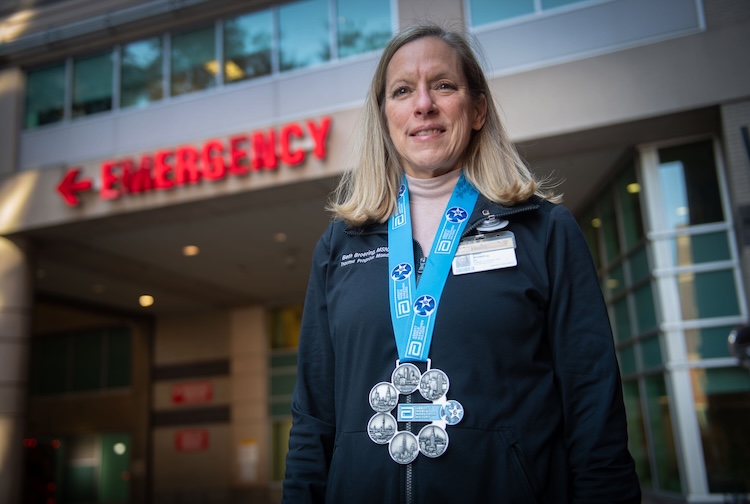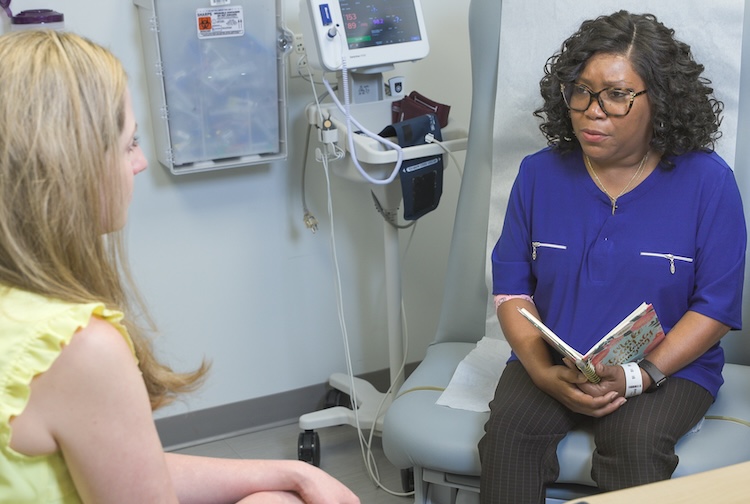Clinical trials offer promising new cervical cancer treatment options
October 14, 2020
Cervical cancer is the most common cancer in women worldwide. Finding effective therapies requires clinical trials, which can offer new options when other treatments have failed. Here, Dr. Leslie Randall, director of gynecologic oncology and a researcher at VCU Massey Cancer Center, discusses cervical cancer treatment, advances and current clinical trials underway at VCU Massey Cancer Center.
Cervical cancer diagnosis and treatment
“When a patient comes in with cervical cancer, it's usually been diagnosed by an OB/GYN or a primary care doctor or through a biopsy,” Randall begins. “We do a pelvic exam to see what stage the cancer appears to be in. Sometimes that also requires a PET scan or CT scan, and sometimes even surgery to decide on the staging.”
Once the cancer stage is determined, your doctor can begin treating you. If you have early-stage cancer, you will have a hysterectomy to remove your uterus and cervix. Your lymph nodes are often biopsied at this time. If you wish to grow your family, you may be eligible for a special surgery to preserve your uterus. If your cancer has spread outside your cervix, you will receive radiation with low-dose chemotherapy. If your cancer has spread farther, you will receive higher-dose chemotherapy.
Advances in cervical cancer treatment
HPV vaccine is the only preventive measure currently available to reduce your risk of cervical cancer. The vaccine is almost 100% effective in preventing cervical cancer. While it isn't new, it is a significant advance.
In 2013, a drug called Avastin (bevacizumab) was developed. This drug improves long-term survival for cervical cancer patients. It was the last successful treatment developed for cervical cancer. Immunotherapy is now being studied as a means of treating this disease.
“Immunotherapy has really revolutionized the treatment of different types of cancer,” Randall says. “Immunotherapy makes sense for cervical cancer because it is caused by the HPV virus. HPV infection of the cervix is common, but most women with HPV don't get cancer because their immune system can clear the virus. But sometimes their immune system is impaired, or it doesn't do its job, and cancer develops. And so, it makes a lot of sense to try and restore that immune system with immunotherapy to help fight off cancer and help treat it.”
Current clinical trials at VCU Massey Cancer Center
“Any new treatment that we have carries risk,” Randall notes. “We do these trials to find out if the treatments are safe and effective.”
Randall manages cervical cancer clinical trials for the Gynecologic Oncology Group Foundation. Three of these trials are taking place at VCU Massey Cancer Center.
The first trial pairs chemotherapy and radiation with an immunotherapy drug called pembrolizumab. This drug is given during and after radiation as “maintenance” to keep cancer away.
The second trial is for women whose cervical cancer has spread throughout their body or whose cancer has returned despite surgery or radiation. This trial will test if standard chemotherapy is better with or without the immune therapy atezolizumab.
The third trial is studying the effectiveness of a dual immunotherapy drug, AK104. In this therapy, a single treatment contains two different drugs. “This therapy targets two different parts of the immune system to help the immune system work better to treat the cancer,” Randall shares.
“It's very exciting to have movement in cervical cancer research,” Randall states. “As a cervical cancer leader in a national group, I've seen where we've been, with really no advances in cervical cancer treatment, to where we are today. Women with cervical cancer now have opportunities to access new treatments in the same way that women with breast cancer, colon cancer and lung cancer have had access to. Now, cervical cancer is getting its day.”
Listen to the podcast
Listen to an in-depth conversation on this topic with Dr. Randall in this podcast. For more information on cancer care at VCU Health, visit VCU Massey Cancer Center.




